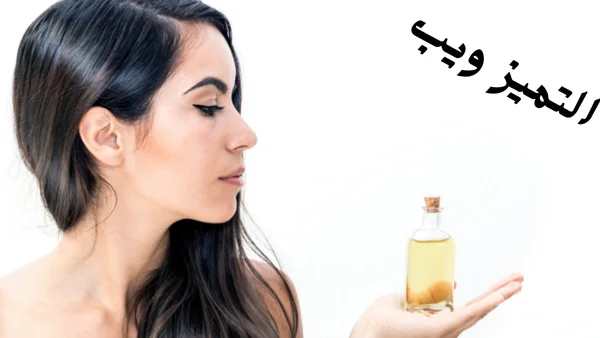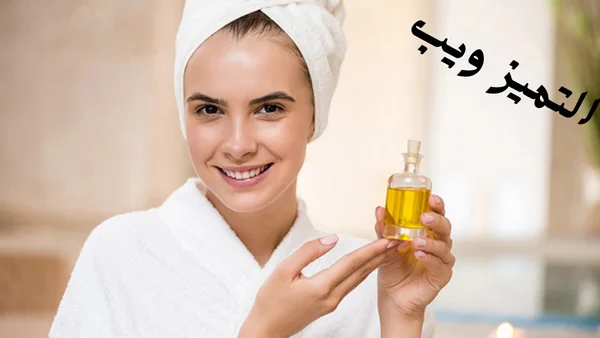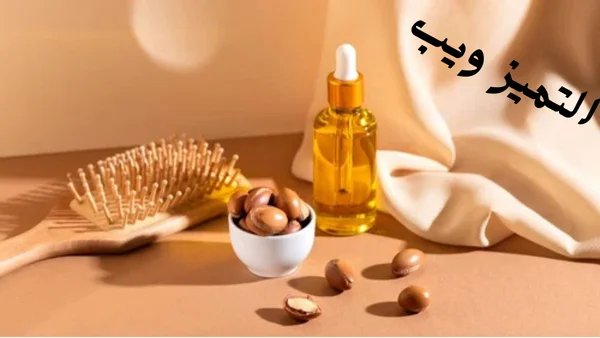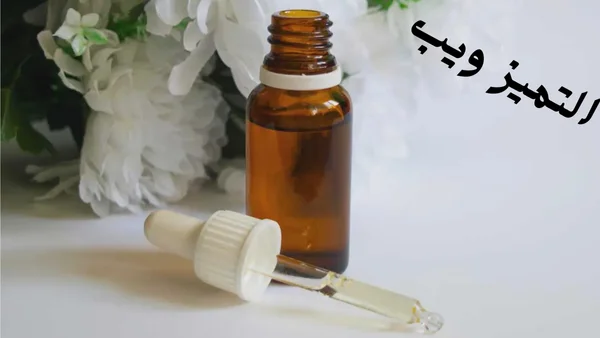Argan oil is one of the oils used in many different natural recipes because it contains many nutrients and natural fats that are very beneficial to the body.
Argan oil is the same as what is known as Moroccan oil, but its primary source is the argan tree, as the seeds of this tree contain this oil and it is extracted from it.
Argan oil (argan oil or argan oil) is extracted from the argan tree or Barbary almond, a very rare tree that resembles the olive tree but is larger and rounder.
The argan tree grows only in Morocco, and this tree has been around for millions of years, and has a tremendous ability to resist drought and fight desertification. Its fruits are green and contain seeds from which argan oil is extracted, and this oil is considered one of the most expensive oils in the world, and this oil is extracted by cold pressing for the first time, which means high nutritional quality.
Argan oil is used for food purposes in Amazigh cuisine, for cosmetic purposes, and in some medical treatments.
Read:Benefits of Swiss chard for sex for men and womenWhat are the most important benefits of argan oil?
Argan oil contains vitamins, fats and many other important substances, so we find that it is very beneficial for hair and skin health. In the following points, we will talk about many of the most important benefits of argan oil. [1]
Read also: The 3 most important benefits of jojoba oil for hair and methods of use
The importance of argan oil for hair
Argan oil contains a group of natural fats that give hair great softness and also help it to hold its follicles together, which prevents hair loss.
- Argan oil is one of the most widely used oils as a natural hair conditioner.
- The nutrients in argan oil help nourish the hair, which helps it grow longer and thicker.
- Argan oil contains many nutrients that help hair growth.
- Argan oil contains natural fats and vitamins that prevent hair breakage and help treat damage.
- Argan oil is one of the most important substances that help prevent hair loss.
- Argan oil helps protect hair from many harmful factors it is exposed to, the most important of which are the ultraviolet rays it is exposed to due to the sun.
- Argan oil is one of the most important natural oils that helps protect hair from many infections that affect it or the scalp. It also protects the scalp from many skin problems such as skin infections or blockage in the pores of hair follicles.
- Argan oil contains a high percentage of omega 3 and a group of other fatty oils. These oils nourish the hair, help get rid of frizz, and give it high density.
- Argan oil cleanses the scalp well, which helps prevent and eliminate dandruff completely. Therefore, it is recommended to use this oil three times a week and massage the scalp in gentle circular motions.
- Argan oil helps hair to have a healthy and shiny appearance because it nourishes it greatly.
- The natural oils and fats found in argan oil are among the most important natural substances that help get rid of dry hair and help moisturize it greatly. [1]
The importance of argan oil for the skin
- Argan oil is widely used to moisturize the skin, so it is one of the most important ointments that help to obtain soft skin and is used to moisturize the hands and feet.
- The natural oils in argan oil are very nourishing, so using it on your skin helps to moisturize it and make it look very hydrated.
- Argan oil, when mixed with foundation, helps give the skin a very shiny appearance.
- The nutrients in argan oil help nourish the skin, which delays the appearance of wrinkles.
Read also: Health benefits of coffee peels 9 important benefits
- And the signs that appear as a result of aging.
- Argan oil is one of the most important natural oils that help get rid of and treat acne.
- Argan oil contains a group of substances that help prevent bacterial infections, which helps
- To prevent skin infections such as acne and infections that occur as a result of scars and wounds.
- Washing the skin with argan oil is one of the most important factors that help cleanse the skin and get rid of impurities that lead to many health problems.
- Argan oil can be used to moisturize the skin and cleanse it of all impurities and dirt. In this case, it is preferable to use the oil to massage the skin and then wash it with water.
- It is preferable to use argan oil to apply it to the elbows and heels in order to moisturize and soften them.
- Argan oil is one of the most important oils that help exfoliate the skin and complexion. [2]
General benefits of using argan oil
In the previous points, we talked about the importance of argan oil for the skin and hair, but this oil also contains a group of general benefits for the body, and we will mention them in the following points: –
Read:11 Benefits of Mastic for Sex and Erectile Dysfunction- Argan oil greatly helps in regulating cholesterol levels in the blood, which reduces the risk of many problems related to the heart and arteries.
- Argan oil contains many very important natural substances such as antioxidants, which in turn work to reduce the growth of cancer cells, which helps reduce the incidence of various types of cancer, the most important of which is prostate cancer.
- Argan oil is one of the most important natural oils that help reduce the risk of diabetes.
- Argan oil is very important in nail care, and when mixed with lemon juice, it strengthens and nourishes them greatly.
- Argan oil is very important for skin health because it helps get rid of the effects that occur as a result of various skin diseases such as psoriasis.
The most important recipes for strengthening hair using argan oil
Apply argan oil to dry scalp and hair, comb through with a wide-toothed comb, leave for up to 10 minutes, then rinse thoroughly. [3]
How to use argan oil for hair
Argan oil can be used for hair in the following ways:
- Conditioner for dry hair: Put a few drops of argan oil on the palm of your hand and massage it into wet hair after showering from the scalp to the ends. This method moisturizes and nourishes the hair, especially if it is damaged by high heat from a hair dryer or iron when used daily. This method helps get rid of frizzy hair and its messy appearance and makes it easier to comb when tangled.
- Style your hair and increase its shine by adding argan oil to the styling product you use. It is preferable to add a few drops to the product and apply it to the hair before combing it to ensure a healthy, shiny and elegant appearance.
- Night hair treatment, by massaging the hair and scalp with Moroccan argan oil and wrapping it with a towel before going to bed until morning. You will notice the vitality of the hair and its softness in the morning. This method can be repeated twice a week to get rid of dandruff.
Read also: 4 benefits of fish oil for hair and how to use it
Ways to use argan oil for skin and face
- Facial moisturizer: After washing your face at night or during the day, massage your face and neck with a few drops of argan oil, which is quickly absorbed by the skin, meaning it does not leave a greasy effect on the face. It can be used as a nourishing serum after using the night cream.
- Tighten facial pores while maintaining their moisture, by mixing a little argan oil with any pore astringent and wiping the face with it. You can prepare a pore astringent to tighten pores and avoid the accumulation of dirt in them, by mixing rose water or orange blossom water with argan oil and using it daily on clean skin.
- A rejuvenating and lightening mask for the face, by mixing a spoon of lemon juice with three spoons of milk, a spoon of honey and three drops of argan oil together, and putting it on the face for ten minutes, then washing it with warm water.
– Lip scrub and moisturizer, add a few drops of argan oil to vanilla extract and brown sugar, and massage the lips with the mixture gently in a circular motion, then rinse with water. - Facial freshness: Add a few drops of argan oil to foundation or cosmetics that are applied as a base layer on the face, giving a fresher and more radiant appearance.
- Fighting the signs of aging, thanks to argan oil rich in antioxidants, the skin can look younger and improve skin elasticity. Argan oil can be used for wrinkles and reduce the effects of wrinkles, either by adding argan oil to an anti-aging product for the skin or by massaging it into the skin and neck daily before bed.
- Getting rid of acne: The face can be massaged twice daily to get rid of acne resulting from excessive secretion of sebaceous glands, as argan oil balances the oiliness of the face, reduces skin inflammation and damage due to antioxidants, in addition to moisturizing it.
- Protection and treatment of eczema and burns. The affected areas of the skin can be massaged daily with argan oil to treat damage resulting from burns, dermatitis (eczema) and ulcers, and to speed up the healing process.
- Protect from the sun’s rays, by using it daily with sunscreen or alone on the face or body.
- Get rid of ingrown hair by warming a few drops of argan oil and massaging the affected areas several times. You will notice the disappearance of the pimples in addition to treating them.
- Treat skin cracks and stretch marks by massaging the areas where these lines appear with warm argan oil daily. [4]
Argan oil for sex and penis
- Argan oil can be used in massage, which in turn increases sexual desire. It can also be used to moisturize the penis before starting sexual intercourse.
- It is one of the safe oils that can be applied in small amounts to the penis, making the lotions and moisturizers used for this purpose unnecessary. [4]
Read also: Benefits of coconut oil for hair 6 benefits learn about them
Argan oil for sensitive areas
- Argan oil moisturizes and softens the skin, so it can be applied to the sensitive area after hair removal, whether using a razor, wax, or laser.
- The best way to use argan oil for the sensitive area is to put a little oil on the hands and gently massage them on the sensitive area.
- Unlike many creams and lotions that cannot be safely applied to the sensitive area, or under the armpits, argan oil is ideal for safe application to these areas.
Read also: 5 benefits of peppermint oil for hair and how to use it
Other benefits of argan oil
- Treat damaged nails, nail roots and remove nail polish.
- Treating cracked feet: Massage your feet with argan oil, wear socks at night, and wipe them in the morning with a warm, damp towel.
- Relieve joint pain and inflammation by massaging the painful area continuously.
- Improve digestion by adding it to food and making sure not to heat it or use it for frying or cooking purposes because this reduces its nutritional value and benefits.
- Lower high cholesterol levels.
It is worth noting that there are not enough studies to prove the effectiveness of argan oil in skin whitening or face whitening, although many argan oil promoters claim this, there are no reliable studies to confirm this. [5]
The difference between original and fake argan oil
It is important to choose a good quality of argan oil, to obtain its many benefits mentioned above, and to avoid poor or non-original types, which do not contain the same concentration of active ingredients.
So when buying argan oil, make sure of the following:
- It contains 100% pure argan oil.
- It is organic.
- It is prepared by cold pressing.
- It is unfiltered, which means that the original type is not clear and transparent, but may contain a little sediment at the bottom of the bottle.
- It has a distinct, pungent odor, while the imitation is odorless. [6]
Read also: Benefits of ostrich oil for sex and treating premature ejaculation
Argan oil harms
Argan oil is generally considered safe for most people, but some people may notice that argan oil causes skin irritation when used topically. This usually occurs in people who have a previous allergy to certain plants, such as nuts.
Therefore, it is recommended to try argan oil on a small area before starting to use it, to ensure that it does not irritate the skin.
As for using argan oil orally, i.e. eating it in foods, it may cause some digestive symptoms, such as nausea, gas, and diarrhea.












